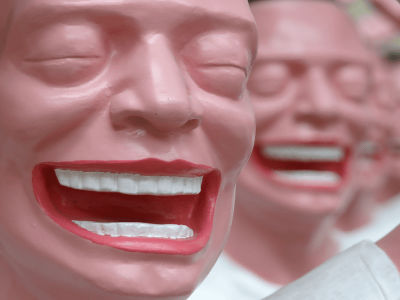Experts explain 7 ways to extend the lifespan of your teeth, which is directly linked to your healthy lifespan

Past research has shown that dental health greatly influences health in old age, such as that having fewer remaining teeth increases the risk of dementia and that frequent tooth brushingreduces the risk of diabetes . Dental experts have summarized how teeth age as you age and how to extend the lifespan of your teeth.
What happens to teeth as you age? And how can you extend the life of your smile?
https://theconversation.com/what-happens-to-teeth-as-you-age-and-how-can-you-extend-the-life-of-your-smile-215786
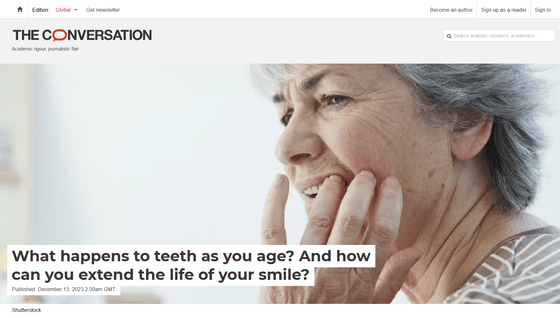
Human teeth, especially the crowns that protrude from the gums, are made up of a very hard enamel on the surface, a relatively soft dentin on the inside, and a dental pulp in the center where nerves and blood vessels are located. Masu.
According to Arosha Weerakoon, a senior lecturer in the School of Dentistry at the University of Queensland in Australia, dentin is made by special cells called
Therefore, as we age, teeth become brittle and the dentin loses its elasticity, making it more likely to break. This tendency is especially strong if you have a large filling in your tooth or if you have had root canal treatment to treat the root of your tooth due to cavities.
In addition, like dentin, enamel also becomes thinner, allowing the opaque dentin to peek out from underneath. This is the reason why elderly people's teeth are dark in color.
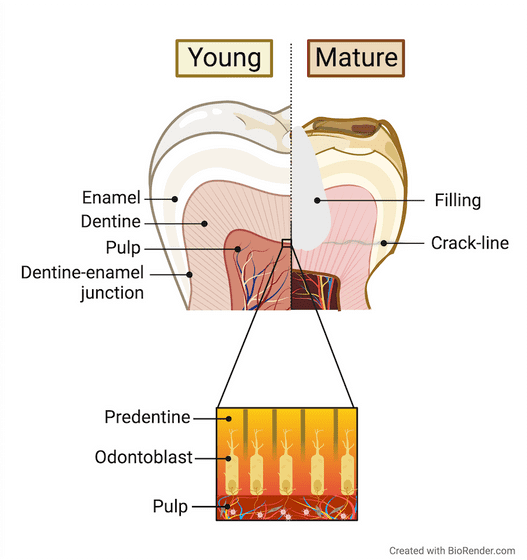
Mr. Weerakoon has summarized the following seven points as a way to maintain teeth that are deteriorating in this way and extend your lifespan.
◆1: Do not apply unnecessary force
It is strictly prohibited to use your teeth to open food containers or use your teeth as tools or vices, as this puts strain on your teeth. In addition to this, it is also recommended to use a night guard to prevent teeth grinding and clenching while sleeping.
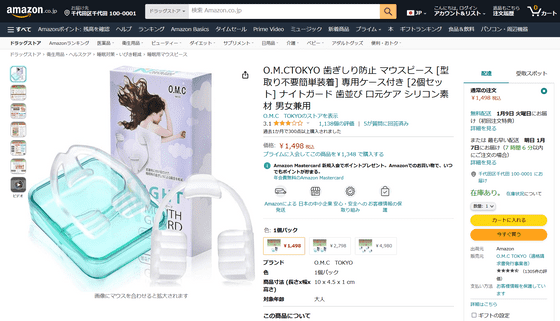
Additionally, if you have a tooth that has had a large filling or root canal treatment, you may want to talk to your dentist about filling materials or
◆2: Distribute the burden
If you are missing a molar, or back tooth, you will need to distribute the force so that it does not put undue stress on the remaining teeth. Specifically, these include bridges , where artificial teeth are attached to bridge the gap between the teeth on either side of a missing tooth, implants , where artificial teeth are attached to posts placed in the jaw, and dentures. Masu. Weerakoon says these dentures must be replaced at least every 10 years.
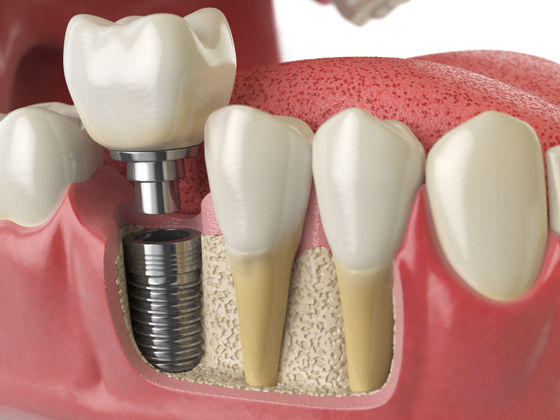
◆3: Preserve enamel
Although many toothpastes contain abrasives, you can prevent enamel and dentin loss by using a non-abrasive toothpaste and a soft toothbrush. Also, minimizing exposure of your teeth to foods such as lemon and malic acid, as well as acids such as vomit, will help maintain your enamel.
◆4: Increase saliva
Saliva has antibacterial properties that protect teeth from acids and clean teeth and reduce cavities. However, the amount secreted by the salivary glands decreases with age, and certain medications prescribed for chronic conditions such as depression and high blood pressure can also reduce the quantity and quality of saliva. If you are concerned about decreased saliva production or dry mouth, it may be effective to consult your doctor and choose a different medication that reduces the effect on saliva.

◆5: Treat periodontal disease
When periodontal disease develops, the gums recede, darkening the color and exposing the tooth roots that are susceptible to cavities, so if periodontal disease develops, it must be properly treated and not left untreated.
◆6: Prevention of cell aging
According to Weerakun, aging refers to ``a process in which the DNA within a cell changes and becomes less able to withstand physical, chemical, or biological damage.'' Cellular aging also promotes the development of cancer, worsening of existing cancers, and chronic diseases such as Alzheimer's disease, diabetes, osteoporosis, and heart disease.
If you can prevent cell damage by changing lifestyle habits such as smoking, uncontrolled diabetes, and periodontal disease, you can maintain beautiful teeth and extend the lifespan of your smile.
◆7: Get professional help
Even if you take the above measures, as you get older, your cognitive ability, manual dexterity, and visual acuity inevitably decline, making it difficult to brush your teeth properly. If this happens, it's a good idea to visit your dentist regularly to have your teeth cleaned and recommended tooth brushing tools and products as needed.
Related Posts:
in Science, Posted by log1l_ks






